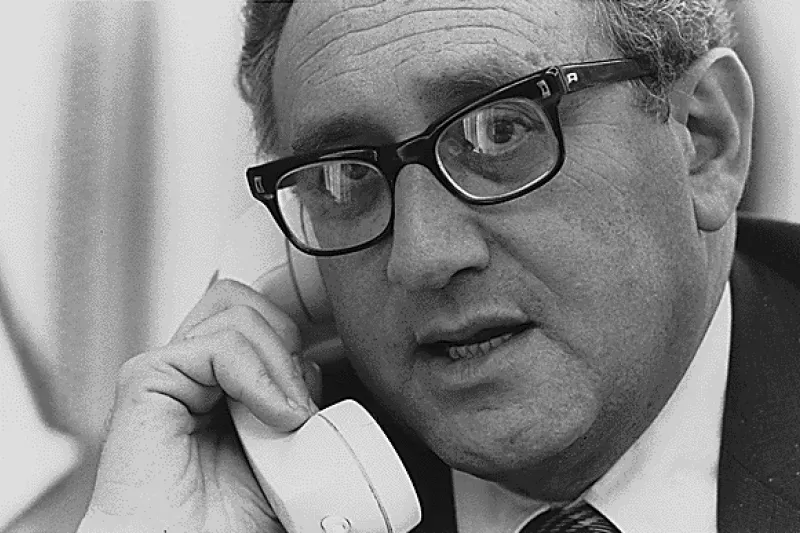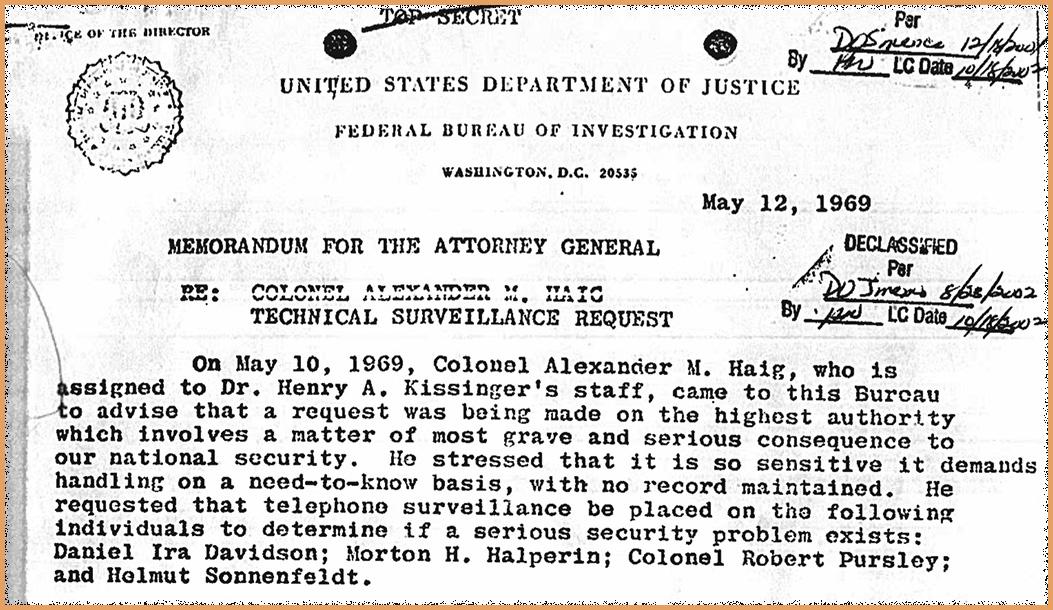A Declassified Dossier on HAK’s Controversial Historical Legacy, on His 100th Birthday
Archive Posts Revealing Records of Kissinger’s Role in Secret Bombing Campaigns in Cambodia, Illegal Domestic Spying, Support for Dictators and Dirty Wars Abroad
A tremendous resource of information. Go here to access numerous links, etc.
Washington D.C., May 25, 2023 - As Henry Alfred Kissinger (HAK) reaches 100 years of age on May 27, his centennial is generating global coverage of his legacy as a leading statesman, master diplomat, and realpolitik foreign policy strategist. “Nobody alive has more experience of international affairs,” as The Economist recently put it in a predictably laudatory tribute to Kissinger. During his tenure in government as national security advisor and secretary of state (January 1969 to January 1977), Kissinger generated a long paper trail of secret documents recording his policy deliberations, conversations, and directives on many initiatives for which he became famous—détente with the USSR, the opening to China, and Middle East shuttle diplomacy, among them.
But the historical record also documents the darker side of Kissinger’s controversial tenure in power: his role in the overthrow of democracy and the rise of dictatorship in Chile; disdain for human rights and support for dirty, and even genocidal, wars abroad; secret bombing campaigns in Southeast Asia; and involvement in the Nixon administration’s criminal abuses, among them the secret wiretaps of his own top aides.
To contribute to a balanced and more comprehensive evaluation of Kissinger’s legacy, the National Security Archive has compiled a small, select dossier of declassified records—memos, memcons, and “telcons” that Kissinger wrote, said and/or read—documenting TOP SECRET deliberations, operations and policies during Kissinger’s time in the White House and Department of State. The revealing “telcons”—over 30,000 pages of daily transcripts of Kissinger’s phone conversations many of which he secretly recorded—were taken by Kissinger as “personal papers” when he left office in 1977 and used, selectively, to write his best-selling memoirs. The National Security Archive forced the U.S. government to recover these official records by preparing a lawsuit that argued that both the State Department and the National Archives and Records Administration (NARA) had inappropriately allowed classified U.S. government documentation to be removed from their control; once they were returned, Archive senior analyst William Burr filed a FOIA request for their declassification. The draft lawsuit—which was never filed—is included in this dossier, since Kissinger’s effort to remove, retain and control these highly informative and revealing historical records should be considered a critical part of his official legacy.
This special posting also centralizes links to dozens of previously published collections of documents related to Kissinger’s tenure in government that the Archive, led by the intrepid efforts of William Burr, has identified, pursued, obtained and catalogued over several decades. Together, these collections constitute an accessible, major repository of records on one of the most consequential U.S. foreign policy makers of the 20th century.






